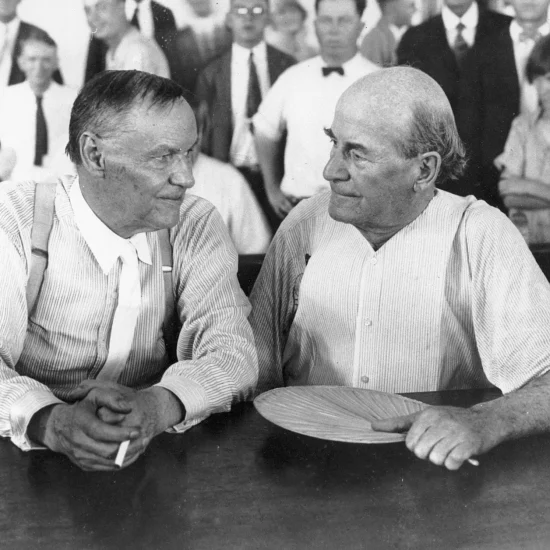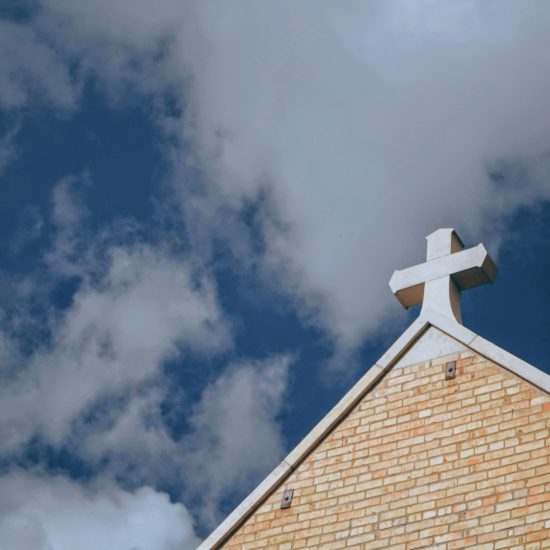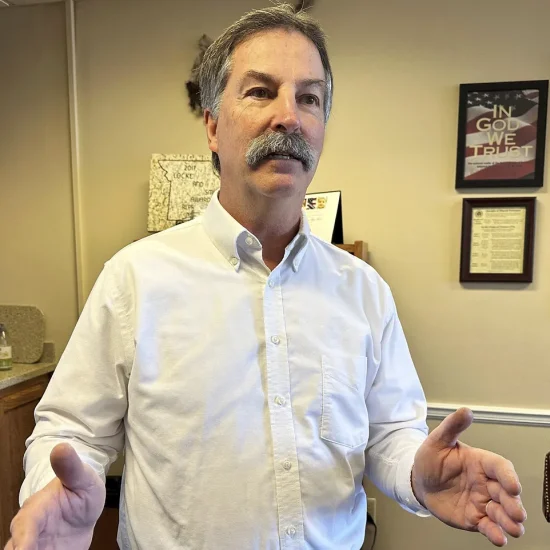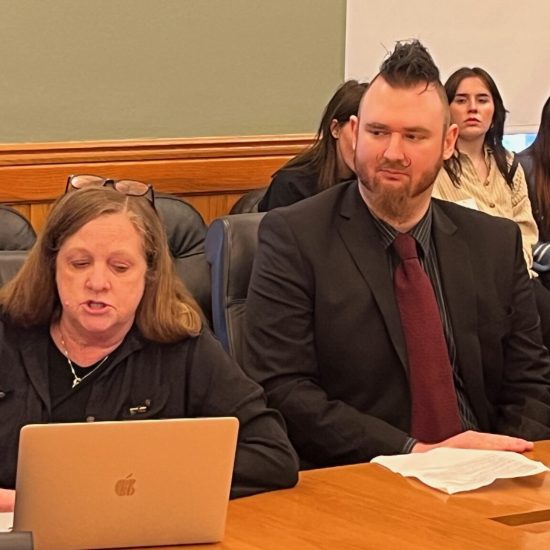ASHEVILLE, N.C. (ABP) – A total of 87 pastors and lay leaders made up the first graduating class of prison chaplains in Cuba June 16. Co-sponsored by the Ecumenical Council of Churches in Cuba and the Ecumenical Seminary in Matanzas, the graduation took place at the Quaker Center in Gibara on Cuba’s northeast coast.
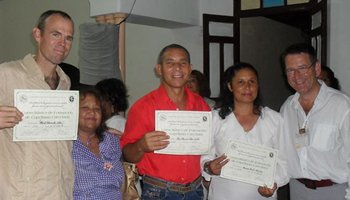
Mark Siler (left), a prison chaplain from North Carolina, spent the past 10 months in Cuba as part of a three-person prison chaplain training team, co-sponsored by the Cuban Council of Churches and the Ecumenical Seminary in Matanzas.
|
Most of the graduates, from 26 different denominational backgrounds, have done prison visitation for years. With the Cuban government’s easing of restrictions on church contact with inmates, Francisco Rodés, retired pastor of First Baptist Church in Matanzas, saw an opportunity to increase the Cuban churches’ ministry among inmates.
“Few of these chaplains receive economic support for this work,” said Rodés, who now serves as the Cuban Council of Churches’ national coordinator for prison ministry and has visited prisoners throughout his ministry. “Only about a third are formally ordained. These humble servants of Christ — both men and women [about 25 percent of the graduates are women], including some former prisoners — were eager to have this training, along with the opportunity to get to know others doing the same work.”
Each graduate completed 60 hours of training over eight months, held in four major cities in Eastern Cuba. The training team consisted of Rodés; Mark Siler, a prison chaplain from North Carolina,;and Lazaro Ceballo, a Cuban church musician. Training topics included conflict transformation and restorative justice, spiritual formation, Bible study and pastoral counseling.
Rodés said the easing of restrictions on contact with inmates “is the result of the prison authorities’ recognition that chaplains are having a significant impact on the lives of inmates.”
A variety of specialists, including psychologists, lawyers, former inmates and other pastoral counselors, assisted with the training. This inter-disciplinary approach — enlivened by music led by Ceballo — was designed to connect chaplains with other resources in their own communities.
“One of the amazing results of this training is the broad ecumenical connections that were made,” said Rodés, who also teaches at the Ecumenical Seminary. “As in many countries, the Cuban Christian community is divided by theological, liturgical and cultural differences. This training may have gathered the widest-ever representation of the churches, from Pentecostals to ‘mainstream’ Protestants, and including a few Roman Catholics. To my knowledge, this has never happened before.”
“The diversity presented challenges at times, and there were lively discussions on a number of complex topics,” said Siler, who was invited to spend 10 months in Cuba as part of the chaplaincy training team. “However, their deep commitments both as Christians and as pastors serving inmate populations were crucial in keeping everyone in the room. And singing together — morning, afternoon and night for two to three days at a time — was significant.
Siler and his family moved to Cuba in October 2010, where he also taught a course on pastoral counseling at the Ecumenical Seminary. The family, including his wife, Kiran Sigmon, an OB/GYN doctor, and daughters Joy and Leigh, are members of Circle of Mercy Congregation in Asheville, N.C. They are returning to the United States at the end of June.
Circle of Mercy Congregation is dually-affiliated with the Alliance of Baptists and the United Church of Christ.
-30-
Ken Sehested is co-pastor of the Circle of Mercy Congregation in Asheville, N.C.

